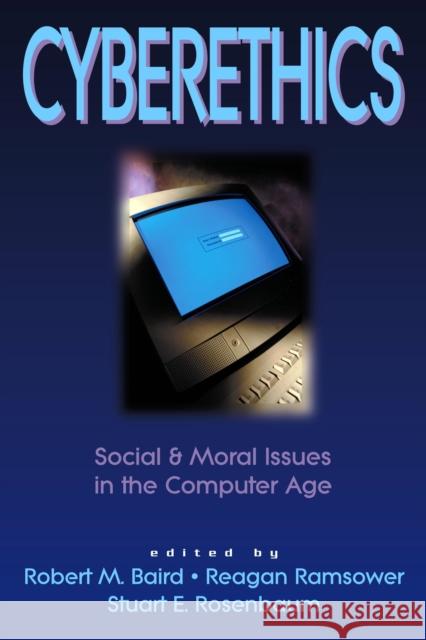Cyberethics: Social & Moral Issues in the Computer Age » książka
Cyberethics: Social & Moral Issues in the Computer Age
ISBN-13: 9781573927901 / Angielski / Miękka / 2000 / 355 str.
The amazing transformation of society brought about by the wide dispersion of computers has given rise to new moral dilemmas. With the rapid development of this technology, the impact of computers on privacy, personal identity, intellectual property, and the form and practice of democracy is becoming more apparent every day. Inevitably, this penetration of computer technology into our private and social lives has a moral dimension, which raises questions about our conduct and requires moral reflection and decision-making. The twenty-six groundbreaking essays collected in this insightful anthology define the nature of this new moral landscape and offer thoughtful answers to the ethical questions raised by the interaction of people and computers.
Divided into five sections, the volume begins with a definition of cyberethics. There is general agreement with James H. Moor's basic definition of the field as "the formulation and justification of policies for the ethical use of computers." Next the issues of anonymity and personal identity are considered. Computers provide individuals with a unique opportunity to create personae for the virtual world that are quite distinct from their normal identities. What are the moral dimensions of creating virtual personalities?
Perhaps the most pressing ethical issue is addressed in the next section on privacy. The ability of computers to store vast amounts of information on any individual raises the harrowing specter of a Big Brother society in the not-too-distant future. How should information be used and how might it be abused? What safeguards are needed to protect privacy as information technology becomes ever more sophisticated?
In the fourth section, questions concerning ownership of intellectual property and copyright law are considered. How can the rights of authorship be protected in the context of the internet?
Finally, the fifth section explores the debate now taking place regarding the impact of computers on democracy. Do computers offer new possibilities for enhancing democracy or will this prospect turn out to be a myth?
This is a much needed anthology of thought-provoking articles on the critical moral issues facing our "brave new world."











